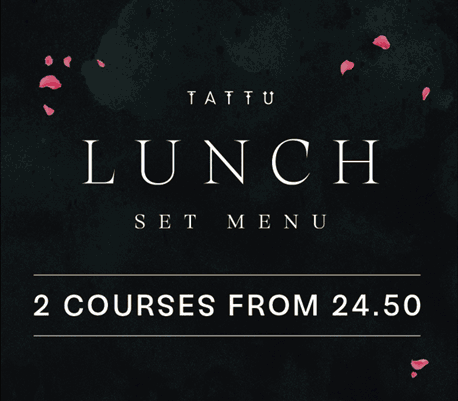Continued education has become more than a luxury—it’s a necessity. With rapid changes in technology and industry practices, staying updated is crucial for career growth.
Online courses, certifications, and professional development programs offer flexible, accessible options for enhancing skills and knowledge. These educational opportunities are key to unlocking new career paths, increasing earning potential, and ensuring job security in an evolving work environment. This article explores the importance of continued education and offers practical advice for choosing the right path to achieve your career goals.
The Importance of Continued Education
Continued education is essential for maintaining relevance and a competitive edge in the modern workforce. Many jobs today require specialised skills that were not necessary a decade ago, and professionals who need to update their knowledge risk being left behind in a rapidly changing landscape.

Continued education, through options like online short courses and professional development programs, allows individuals to enhance their skills, develop critical thinking, and explore topics relevant to their industries.
The Benefits of Upskilling for Career Growth
One of the most compelling reasons to pursue continued education is the potential for increased earnings. Statistics show that individuals with higher education levels or specialised certifications often earn more than those without.
For example, professionals with graduate certificates or advanced training in Australia can see salary increases of up to 20% compared to those without such qualifications. You can also read about the government-funded courses in Australia.
Job Security in a Changing Environment
Job security is another critical benefit of continued education. As industries evolve, job roles also change. Workers continuously upgrading their skills are more likely to remain relevant and retain their positions even as their industries transform.
Online courses, especially those offered by industry leaders, equip individuals with up-to-date knowledge and skills employers value.
Online Courses vs. Face-to-Face Learning
Choosing between online courses and traditional one-to-one learning depends on individual preferences and goals. Online courses offer flexibility, allowing you to study independently and balance your education with other responsibilities. This is particularly beneficial for working professionals needing more time to attend in-person classes.

On the other hand, face-to-face learning provides direct interaction with instructors and peers, which can be crucial for those who thrive in a collaborative environment. Both options have advantages, and the choice often depends on the nature of the course content and the specific skills you wish to develop.
Short Courses and Professional Development
Short courses are an excellent option for individuals looking to acquire new skills or knowledge in a specific area quickly. These online courses cover various topics, from critical thinking to advanced problem-solving techniques. They are ideal for professionals who must stay updated with industry trends or those who wish to explore new career paths without committing to a long-term program.
Professional development programs, which often include short courses, focus on enhancing specific skills directly applicable to your current job or desired career. Many organisations offer these programs to employees as part of their career development initiatives, recognising the importance of continued education in retaining top talent.
Practical Advice for Choosing the Right Educational Path
Before beginning any educational journey, assessing your goals is crucial. What do you hope to achieve with further education? Are you looking to enter a new career, advance your current one, or enhance your knowledge? Answering these questions will help you identify the right courses or programs that align with your objectives.
For example, if you’re aiming for a leadership role, consider courses focusing on management, emotional intelligence, or strategic thinking. If you’re interested in a technical field, online college courses in areas like data science, coding, or digital marketing might be more appropriate.
An Accessible Path to New Skills
Free online courses offer an accessible way to acquire new skills without the financial burden associated with traditional education. Platforms like Coursera, edX, and LinkedIn Learning provide various classes taught by industry leaders and university professors. These courses cover different subjects, from critical thinking and problem-solving to technical skills and business management.

While these free courses may not always offer formal qualifications, they can be a valuable addition to your resume and demonstrate your commitment to continued learning. Moreover, many platforms allow you to earn certificates for a fee, and using professional CV templates can help you present these credentials effectively.
Advantages of Continued Education
- Increased earning potential: Higher qualifications often lead to higher salaries.
- Enhanced job security: Up-to-date skills make you more valuable to employers.
- Career flexibility: New skills open doors to different career paths.
- Personal growth: Learning new things boosts confidence and satisfaction.
Final Words
Continued education is a powerful tool for career advancement, offering numerous benefits such as increased earning potential, job security, and personal growth. While exploring different study options, assessing your career goals, and staying updated with industry trends, you can take control of your professional development and unlock new career opportunities. The path to success begins with a commitment to lifelong learning.
FAQs
1. What is the best way to choose the right online course?
Research the course content, entry requirements, and institution reputation. Ensure the course aligns with your goals and learning preferences.
2. Are free online courses worth it?
Yes, they provide valuable knowledge and skills. While they may not offer formal qualifications, they demonstrate a commitment to learning and can enhance your resume.
3. How can continued education impact my career?
Continued education can increase earning potential, improve job security, and open doors to new career opportunities by keeping your skills up-to-date with industry trends.
Images courtesy of unsplash.com and pexels.com












